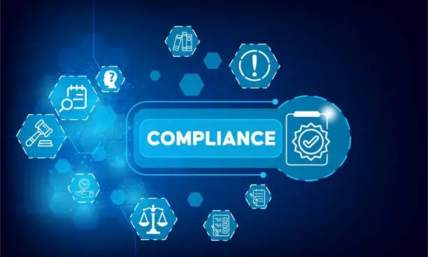HR Payroll Compliance: Overview, Tips, and Strategies
Has it ever occurred to you that your company’s payroll process is more than rolling out paperwork? In the fast-paced business world, HR teams play a role in making sure payroll processes align.
Any inconsistency in a company’s payroll can attract legal headaches. It brings double the paperwork and financial implications. This is why efficient HR payroll compliance is non-negotiable for any sustainable business.
We have compiled an all-in-one HR payroll compliance guide to mitigate this risk. You get an in-depth look into everything concerning HR payroll compliance. You will also find helpful tips and strategies that can make any HR payroll process a seamless one.
Why Is HR Payroll Compliance So Important?
A company’s payroll is the backbone of its finances and relates to all payment procedures. At the federal, state, and local levels, there are requirements and regulatory standards.
So, when we talk of HR payroll compliance, it refers to the combination of these procedures and policies. An HR team of a business or organization sets them up. These processes ensure the company is in line with the regulatory laws and standards.
At the core of it, HR payroll compliance is more than making sure to meet legal obligations. A well-set-up payroll process builds trust in employees. Employees are more motivated when they have reliable pay statements.
In the same way, a failure of the payroll system can lead to legal battles and a damaged business reputation. You can transform any payroll process into a compliant and efficient one. This guide will help you with everything from setting up your processes to dos and don’ts of HR payroll compliance.
What Is HR’s Role in Payroll Compliance?
An efficient HR payroll starts with understanding what you need to do to make it happen. The key roles of an HR team lay the foundation for a good payroll process.
Up-To-Date Policies
Different states have laws and regulations that guide the execution of payroll processes. Due to the fast-paced business world, these policies change frequently. In a year, a policy can become outdated. Having all policies that pertain to your HR payroll procedure up to date is a good start. For best practices, regular updates from wage calculations to tax deductions will help.
Team Trainings
Policies are not the only thing to keep updated for an efficient payroll system. The team managing these procedures and processes also needs to be up-to-date. It would mean learning and unlearning outdated processes. This can also mean staying up to date with the latest software.
You must invest in team training, like webinars, conferences, and workshops. Trainings bridge the skill gap and help to keep up with updates and policy changes. You can adopt a regular training schedule so everyone knows what to do and how to do it.
Verification and Auditing
Periodic auditing is essential when managing a payroll process. It can act as a preventive measure against potential errors in documentation. Proper verification would ensure that all figures and data are accurate. Even the smallest error in documentation can snowball into a potential legal battle.
Timely auditing helps to check for these errors and correct them in time. Auditing should be a routine task for an HR team. It can be carried out on a consistent frequency, either monthly or quarterly. With such a system set up, irregularities can be tracked and fixed before they become an issue.
Transparency and Communication
A reliable payroll process communicates trust and transparency to employees. Sometimes, even with the most efficient payroll procedures, employees might still have questions.
A key step is to be at that point of active communication and reassurance, addressing every doubt immediately. Timely communication and transparency can manage major payroll issues. By establishing a clear line of active communication, you reduce potential legal battles.
What Happens When Payroll Compliance Is Ignored?
An efficient payroll system is a key part of a thriving business and economy. As a result, many federal, state, and local laws have specific rules for these processes. Failure to comply can cause several consequences that affect the organization:
Penalties and Fines
In most states, defaulting on payroll compliance attracts a legal fine. While the cost of these fines varies statewide, the average cost could start at $50 per employee. This cost increases depending on the extent of the violation and the state laws.
To small businesses, the fine seems negligible. Large organizations with thousands of employees can have these fines add up to a significant amount.
Damaged Reputation
Ignoring compliance can dent the reputation of the organization for years. This is common when such errors lead to legal battles and lawsuits filed by the employees.
In certain unfavorable conditions, some businesses might even face class action litigation. Such action would tarnish their image in the marketplace. An organization with a tarnished image would find it difficult to attract talent.
Operational Issues
Payroll errors go beyond the financial and legal implications. It can also stall business operations. If not handled, it can cause major operational problems, such as general dissatisfaction.
Other factors include increased turnover and low employee morale, which affect business operations. A lot of resources are then diverted to sort out these issues. These resources could have been better used on strategic business operations.
The HR Payroll Compliance Checklist
When it comes to payroll compliance, the stakes are high for a business aiming to be sustainable. A tested and trusted payroll compliance checklist can be the backbone of your operation. This way, you can ensure little to no loopholes. Here is a strategic HR payroll compliance checklist to help your operations be compliant and error-free:
-
Develop a clear payroll policy/review
-
Ensure frequent and consistent staff training
-
Keep accurate, up-to-date records of all information
-
Periodic audit and verification schedule
-
Adopt payroll software for all data
-
Establish clear and transparent communication protocols
-
Consistently review and update all your payroll processes and information
Tools and Resources for HR Payroll Compliance
Staying up to date on payroll compliance is not the most straightforward process. However, with the right tools and resources, it can make the process a lot smoother:
-
Modern Payroll Software: A payroll software would help you automate all payroll processes. From a single dashboard, you can largely reduce the risk of errors. Some of them come with built-in compliance features. They get updated to meet the state laws of your respective region.
-
Compliance Checklists: These are modifiable templates curated to meet your business needs. You can use them to track processes and schedule audits.
-
Industry Websites and Publications: Visit government websites to stay updated on policy changes. You can get insights on changes in regulations and policy laws.
-
Training Portals: Invest in e-learning platforms and training programs to educate the staff. This will help keep them up to date on policy changes and regulations.
In Closing
Every organization needs to have an effective and efficient payroll process. With the right tools and strategies, you can have a smooth and efficient payroll system. One that not only meets the legal requirements but also fosters employee trust. Take charge of your payroll process today.
Empower your HR team by streamlining your payroll process. Ready to simplify payroll and boost compliance? Visit Our Platform now and take control of your payroll today!














